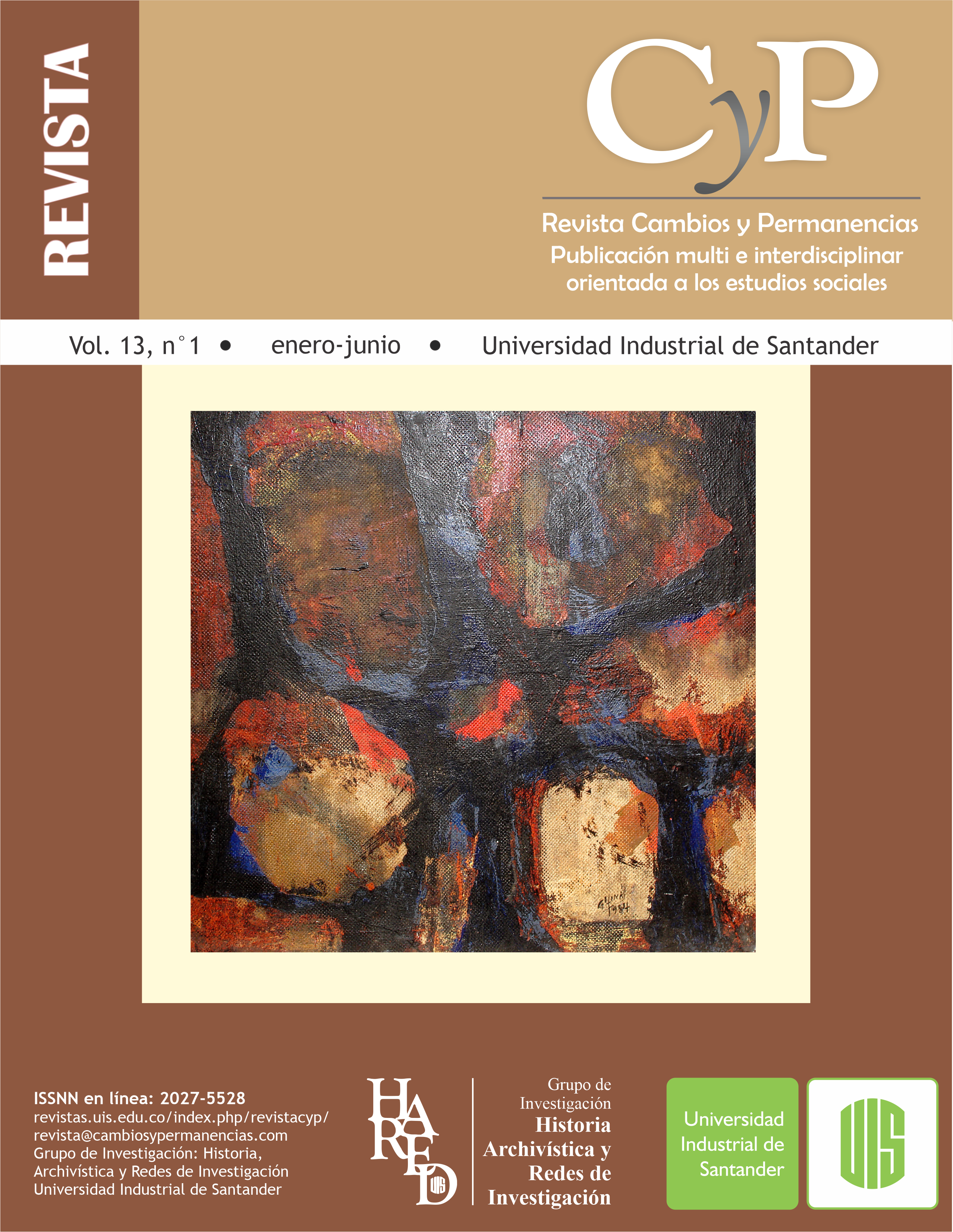Published 2022-06-05
Keywords
- Peace process,
- citizenship,
- discourse,
- reincorporation,
- ex-combatant
How to Cite
Copyright (c) 2022 Revista Cambios y Permanencias

This work is licensed under a Creative Commons Attribution 4.0 International License.
Abstract
This article displays the outcomes of the project "The process of reincorporation of ex-combatants in Colombia: A look from the political movements in opposition" during the years 2020-2021 by the Research group of Ex-combatants, Conflicts, and Civility of the University of Caldas, Colombia. The project set out to listen and understand the perceptions about the reintegration process of former FARC-EP combatants, in the speeches of three people declared in open opposition to the Peace Agreement previously signed in Colombia.
Lesson analysis from a socio-dialogical perspective, inspired by the approaches of María Cristina Martínez (2005), was the guiding method. The guiding question was: What images about the reincorporation process of former FARC-EP combatants were constructed from the political speeches of opposition to the Peace Agreement? For that the analysis of three types of statements was made: the constructed image of ex-combatants - Of themselves as citizens and of the reincorporation process.
We find that the historical armed confrontation fixes the image of the other as an enemy carrier of evil. Listening is revealed as a democratic and investigative virtue, in this sense, listening and discourse analysis are methodological tools and powerful keys to deepening democracy.
Downloads
References
- Angarita,P., Gallo, H., Jimenéz, I., Londoño, H., Londoño, D., Medina, G., Mesa, J. A., Ramírez, D., Ramírez, M. E. y Ruiz, A. M. (2015). La construcción del enemigo en el conflicto armado colombiano 1998 - 2010. Sílaba editores.
- Ávila-Fuenmayor, F. (2006). El concepto de poder en Michel Foucault. Telos, 8(2), 215-234. https://www.redalyc.org/articulo.oa?id=99318557005
- Bruner, J. (1991). Actos de significados. Más allá de la revolución cognitiva. Alianza editorial.
- Han, B. C. (2017) La expulsión de lo distinto. Herder Editorial
- Hilb, C. (s.f.). Justicia, reconciliación, perdón. University of Buenos Aires / CONICET. https://journals.co.za/doi/pdf/10.10520/EJC168360
- Martínez, M. C. (2005). La construcción del proceso argumentativo en el discurso. Perspectiva teórica y trabajos prácticos. Cátedra UNESCO MECEAL: lectura y escritura.
- Mèlich, J. C. (2015). La lectura como plegaria. Fragmentos filosóficos I. Fragmenta editorial.
- OEA. (s.f.). Sociedad civil. https://www.oas.org/es/temas/sociedad_civil.asp
- Rueda, C. (2012). Perdón y arrepentimiento: la experiencia de Jean Améry. Ideas y Valores, 61(148), 79-99. http://www.scielo.org.co/scielo.php?script=sci_arttext&pid=S0120-00622012000100005
- Uribe, M. V. y Urueña, J. F. (2019). Miedo al pueblo. Representaciones y autorrepresentaciones de las FARC. Editorial Universidad del Rosario.
- Villa Gómez, J., Rúa Álvarez, S., Serna, N., Barrera Machado y Estrada Atehortúa, C. (2019). Orientaciones emocionales colectivas sobre el conflicto armado y sus actores como barreras para la construcción de la paz y la reconciliación en ciudadanos de Medellín. El Ágora USB, 19(1). 35-63. https://doi.org/10.21500/16578031.4122
